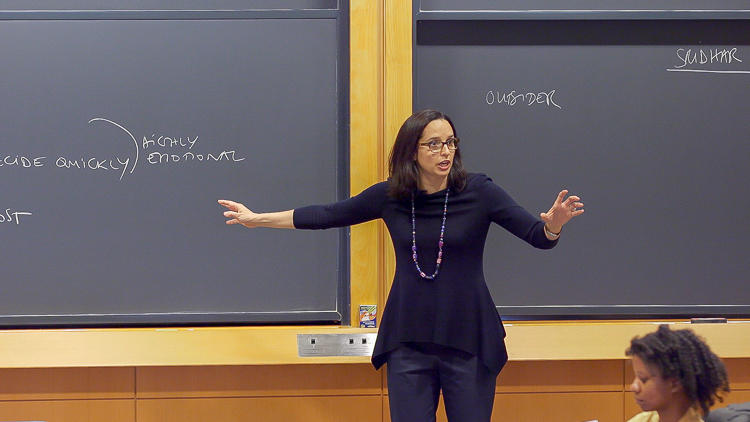Failing to debrief after an intense simulation is a missed opportunity, but when simulation debriefs fail to draw on specifics from the activity, this can also short circuit discussion and reflection. Accordingly, providing fresh, relevant data from a recently conducted simulation can deepen debrief conversations and offer students concrete details to drive their reflections. In this video, Mandell and his teaching assistant share both quantitative and qualitative data from the simulation to enliven and enhance the full group debrief. Calling upon specific groups to share their experiences from the activity, the instructors demonstrate the range of paths students can take to reach a solution.
Presenting simulation data to spark discussion and reflection
Instructor
Brian Mandell, Mohamed Kamal Senior Lecturer in Negotiation and Public Policy
Student Group
Graduate
School
Harvard Kennedy School
Course
Advanced Workshop in Multiparty Negotiation and Conflict Resolution
Group Size
60 students
- Secure students’ consent prior to employing simulation data. Based on the given exercise and its participants, it may make sense to de-identify the data exhibited or aggregate it to share overall themes from the activity. Use careful judgment when selecting and showcasing this kind of data for teaching purposes.
- Keep in mind that data can come in different forms. You might project numbers or scores if they are relevant to your simulation. Pictures, videos, and student quotes might also compellingly showcase results and spur discussion.
- Focusing on the outcomes of specific groups can help focus the discussion. Consider using fishbowl discussions to allow one group to discuss their simulation experience in greater specificity and depth.
- Sharing different approaches to the same simulation can be one way of leveraging student experiences and expertise (Sawyer, 2006).
- In this climate change simulation run at the MIT Sloan School of Management, the long-term effects of proposals are analyzed live to give participants immediate feedback on their ideas.
- Interested in zooming-in on a specific group or group of participants during a simulation debrief? Consider using the fishbowl discussion technique, discussed here on the Association of College and University Educators blog.




